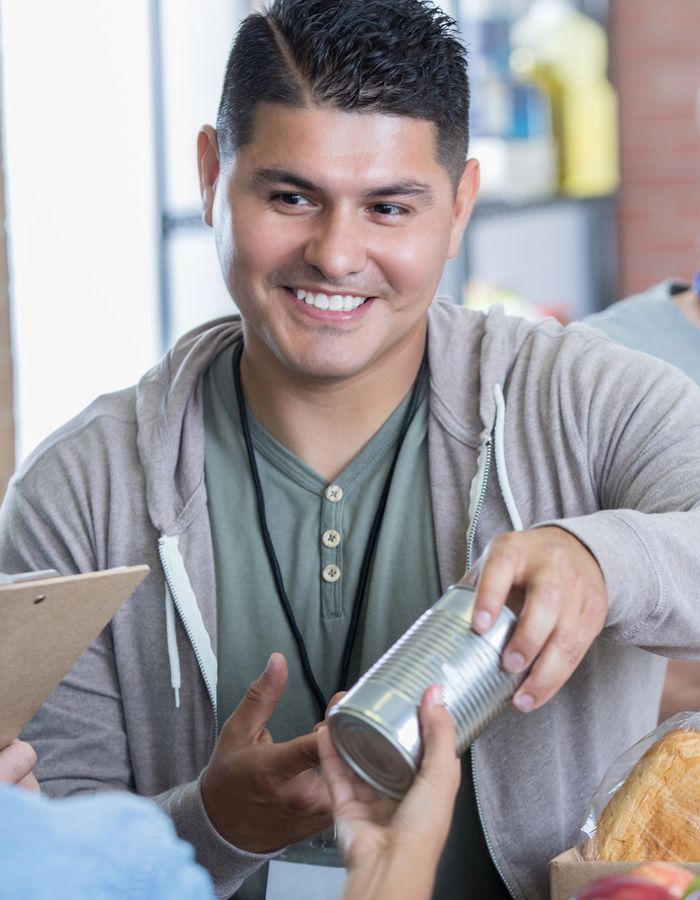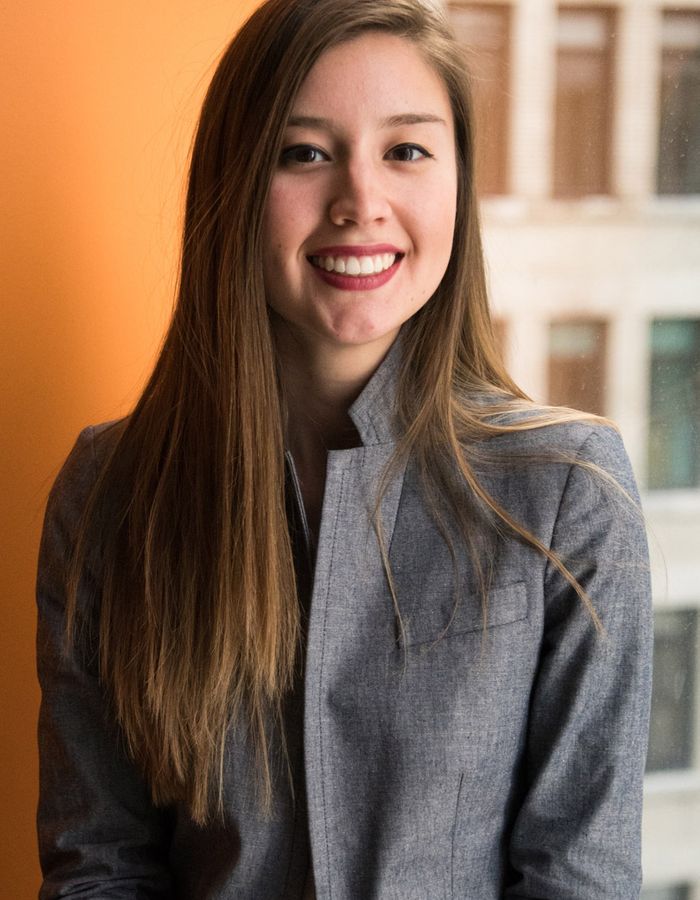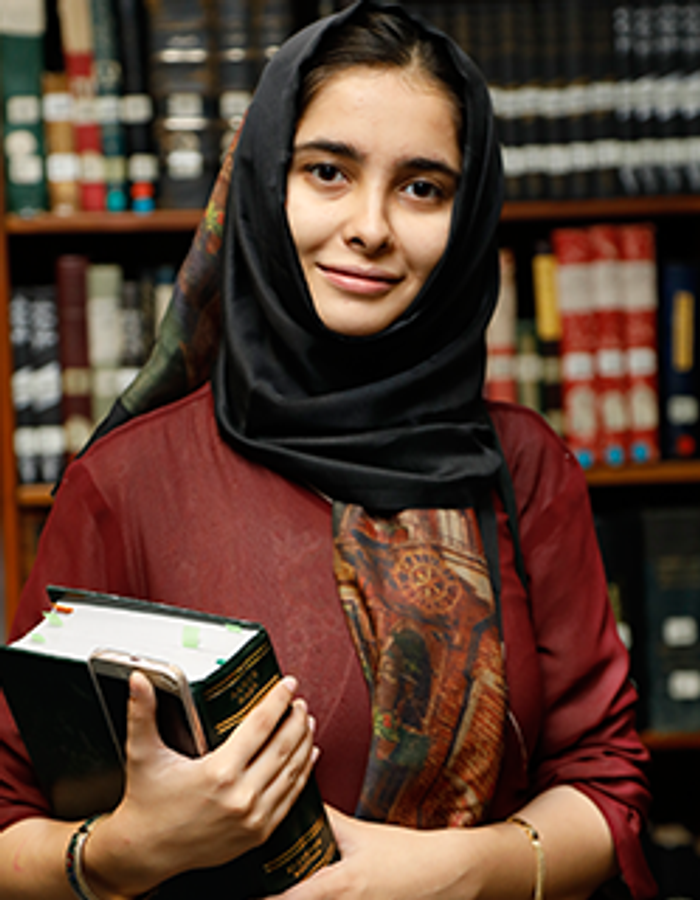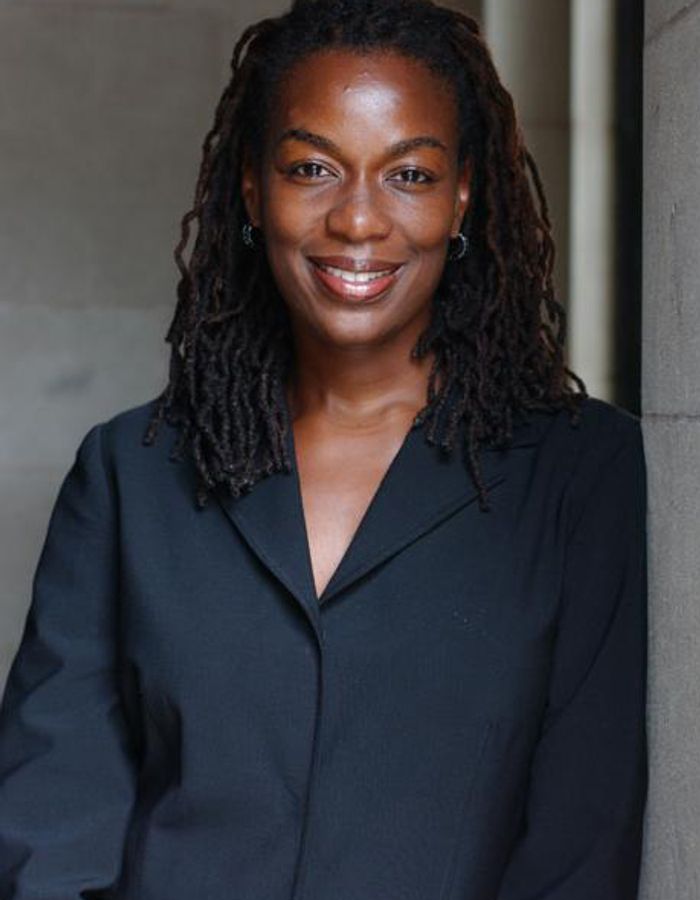A hackathon for International Women’s Day
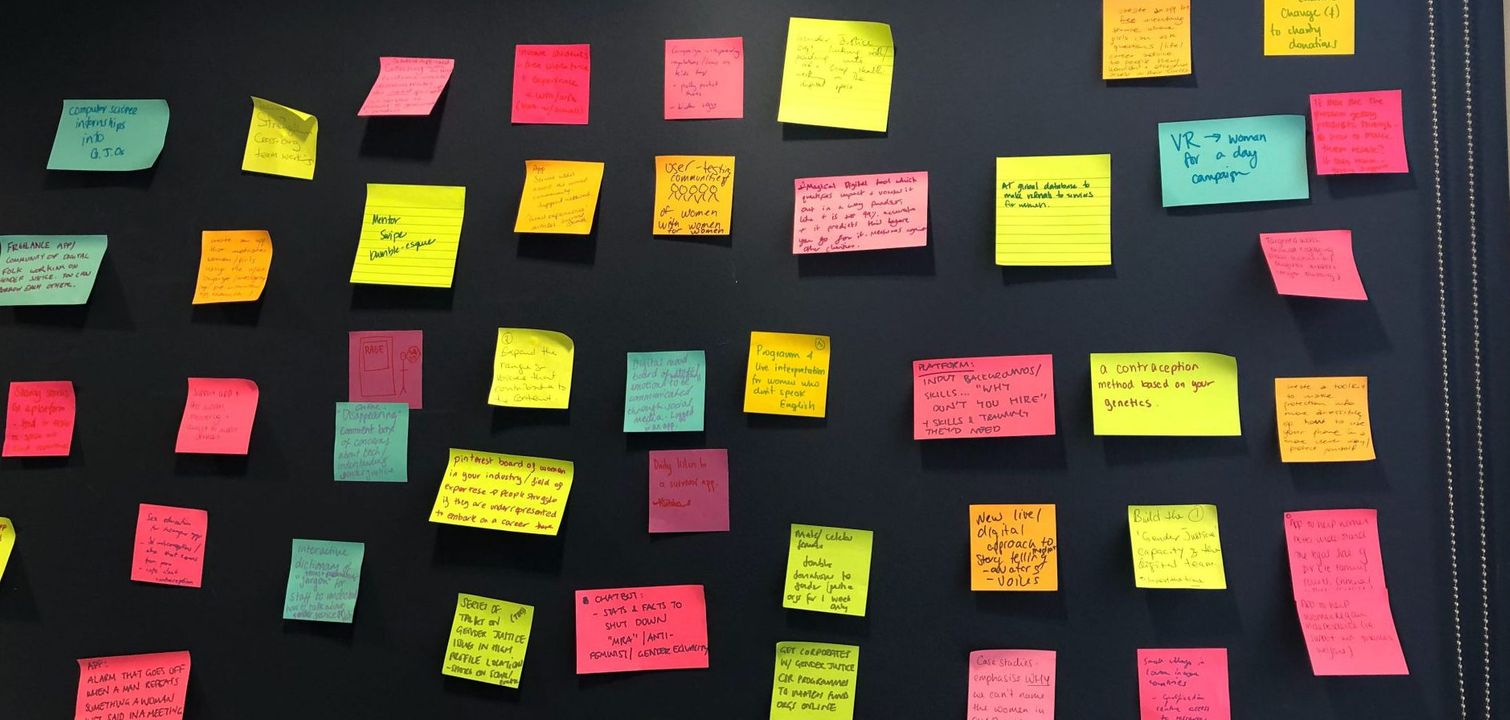
The 8th of March marks International Women’s Day, which was celebrated around the world in a number of different ways. Lightful, along with Comic Relief, IG Advisors, and Social Misfits Media hosted a Hackathon for women in the third sector.
A hackathon is a design process in which a number of people from different teams collaborate intensively on projects. For International Women’s Day, we worked together to answer the question “How might gender justice organisations better use digital to strengthen their cause?”
Alisha Miranda from IG Advisors took us through a “Human Centred Design” process over the day. This is a design framework that develops solutions to problems by involving the human perspective in all steps of the problem-solving process.
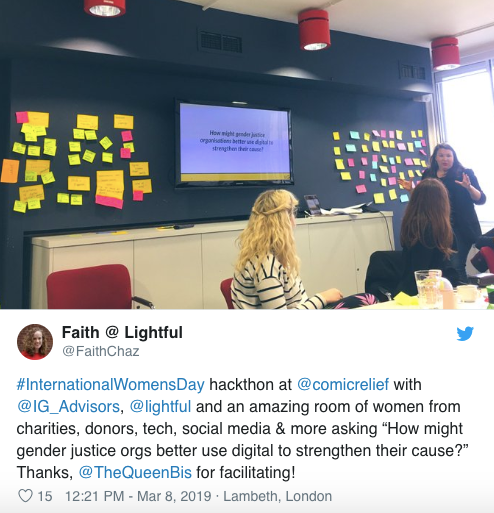
Source: @FaithChaz
We started off discussing our superpowers as people, some of the powers mentioned were – Being able to make a meal out of leftover condiments in the cupboard. Being a master of multiple roles when taking care of kids like a police officer, teacher, taxi driver and more!
From here, we then discussed what we would bring to the table to answer this question. On each table, we had individuals with backgrounds in Gender Studies next to Social Media experts and people who work in the charity sector, specifically, charities with a focus in women’s wellbeing.
Highlighting the barriers
In groups, we highlighted some of the barriers to organisations in this space and gathered together some key insights as to what might prevent us from creating a solution to this question.
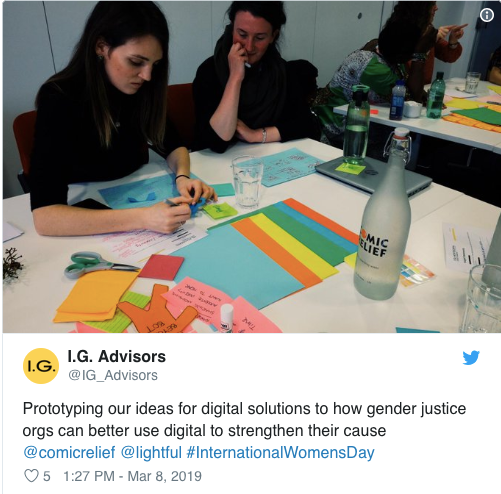
Source: @IG_Advisors
There were a number of barriers for organisations mentioned around the room about the question –“How might gender justice organisations better use digital to strengthen their cause?”
Some of these were
- lack of knowledge and time within their teams to create content for digital platforms
- no capacity to engage with their audience on social media
- lack of understanding about how and why to measure and track digital content
- navigating what topics your organisation wants to join in with
These were all similar barriers or concerns to what I have heard from a number of organisations who have participated in our BRIDGE programme.
Another barrier mentioned to this question was that there is no real gender-responsive approach to certain services. This was added with the example of the Justice system which is predominantly designed for males, but the services and layout of the prisons have not been adapted for women’s needs.
Feminism as a challenge
Also, feminism was spoken about a number of times around the room. The challenge to feminism is that organisations or individuals may have a lack of understanding or a different understanding of the word or movement. The additional barrier to using digital in gender justice organisations is that of intersectional feminism. The textbook definition states The view that women experience oppression in varying configurations and in varying degrees of intensity.
This means that to increase the use of digital within gender justice organisations, their comms team would need to understand the impact of things like class, race, sexual orientation, age, religion, creed, disability and gender both independently and also when they are experienced together.
Sharing ideas
Each individual was then asked to quickly write down as many ideas as possible for an app or platform or campaign that would help to answer the question. Everyone in the room felt excited and empowered to be able to put their ideas forward, meaning that we had over 50 ideas that could all be created and released with the right support.
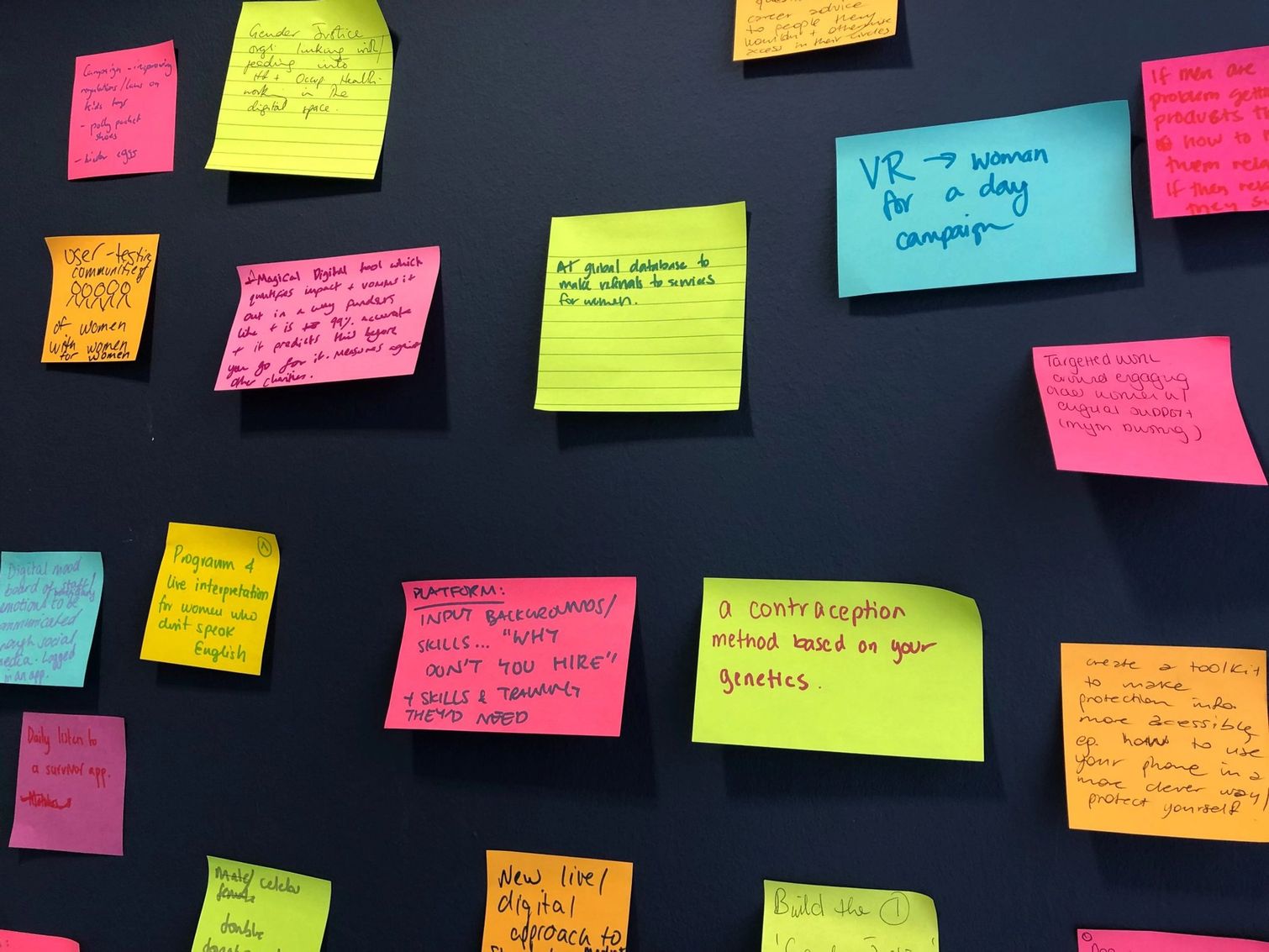
These 50 had to be filtered down to 3 ideas which was a challenge as there were so many that we wanted to create! The winning ideas were –
VR Woman for a day – This idea came from the problem that a number of women are harassed or bullied on social media. From inappropriate pictures, comments or fake accounts being created there is a number of negative behaviours that have been impacting women on social media. This solution was to show others, possibly the bullies or others who do not understand the impact, what it was like to experience this bullying. Working with the social media networks, there would be a number of posts or interactions sent through to the user, negative comments being made on images and more to highlight how much this can upset the receiver or victim of these interactions.
Chatbot – A Solution to take down trolls on social media, to respond to a troll with a number of facts that would stop the troll from continuing their campaign. A number of users on social media will be harassed with comments on social media, it takes a lot of time and knowledge to contend these facts. The Chat Bot would be added to a social media network and if there was a negative comment sent through, the chatbot would send through an appropriate response to combat the comment.
Mentor for a day app – This would be an application that mentors and people that wanted to be mentored would join. They would create a profile with what they already knew or what they wanted to learn and be matched based on a number of subjects, interests or knowledge areas. The mentors would have a number of “badges” in their skills suitcase. The people that wanted to be mentored would have a number of things that they wanted to learn, they would collect the badge when they felt it was completed. Initially, this would be a service offered over the phone or over skype and would allow people to share knowledge and guidance for big life events.
Takeaway
The process was amazing as we started the day exploring barriers, things that stop products like this from being created. To then end the day with three viable projects that with the right teams and contacts, could be created.
The main takeaway was the idea that when you put a number of women or people in a room with different backgrounds, roles, experiences, you can collaborate to create insightful solutions that would have a massive impact on our world today.
We are stronger together.
Together we have skills, knowledge, contacts and strength to make waves.
Let’s work together to continue making waves and inspiring changes!
Latest articles
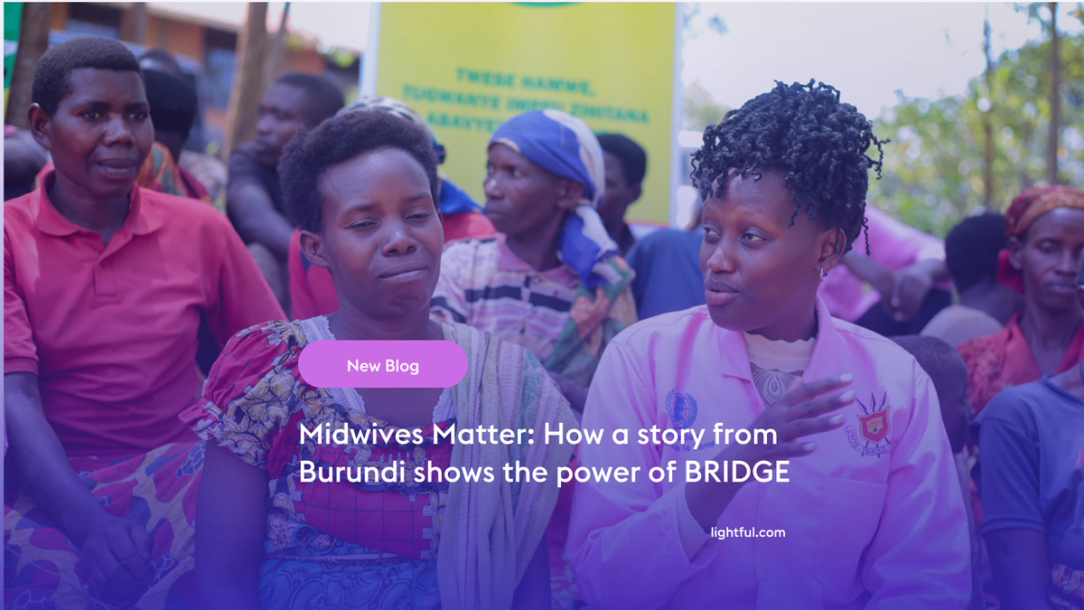
Over the past year, Lightful and the International Confederation of Midwives (ICM) have supported Midwives Associations across Africa, South Asia and the Eastern Mediterranean to build their digital confidence through our BRIDGE programme. These organisations were starting from very different places, but all shared the same goal: to use digital tools to strengthen their voice, raise their visibility and advocate for better outcomes for women and babies.
Related posts
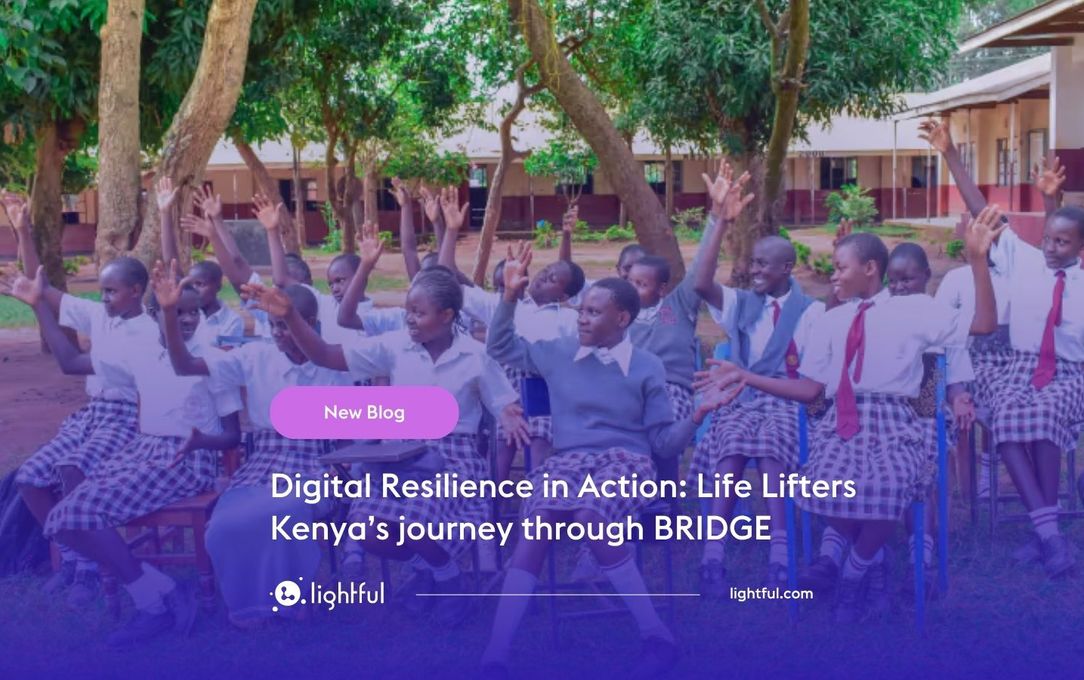
In today’s rapidly evolving digital landscape, the ability to engage online is a necessity. For nonprofits, especially those working in underserved regions or tackling complex social issues, digital tools can be the bridge between intention and impact. Whether it’s reaching new donors, advocating for policy change, or delivering services, digital capacity enables organisations to scale their mission and deepen their impact. Yet many grassroots organisations remain digitally under-resourced. That’s why Lightful created the BRIDGE programme - Building Resilience in Digital Growth and Engagement - to empower nonprofits with the skills, confidence, and strategies to thrive in the digital age and build lasting change.
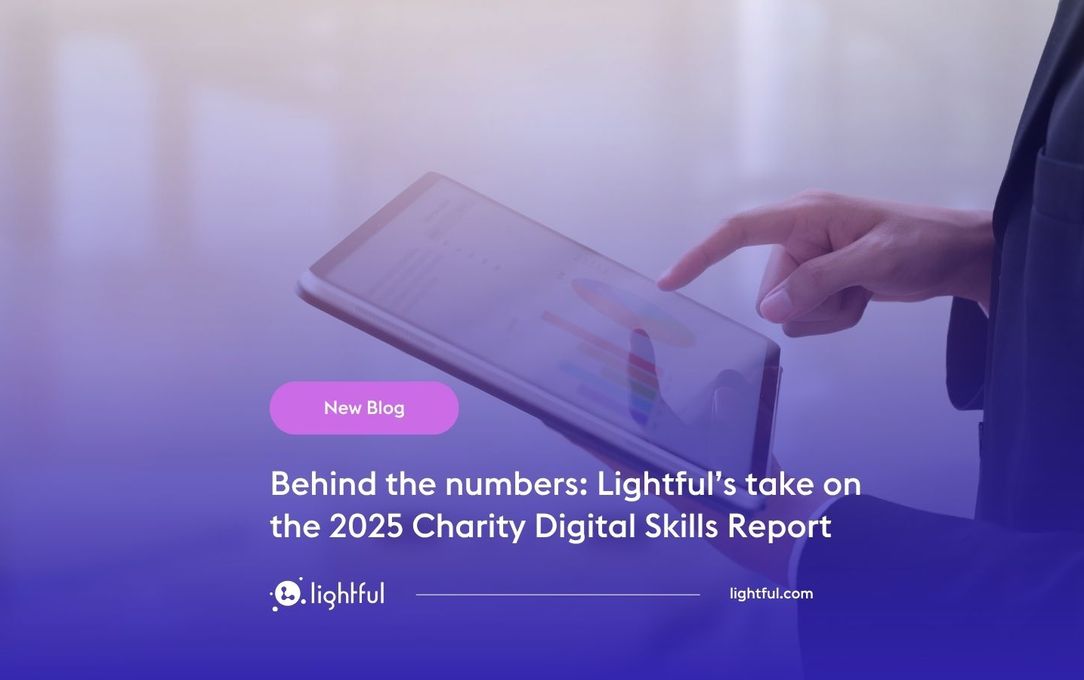
Advancing digital maturity: what Lightful has learned from supporting 3,500 charities globally
See who we help
Contact us
Want to learn more?
Email Jonathan and start a conversation



